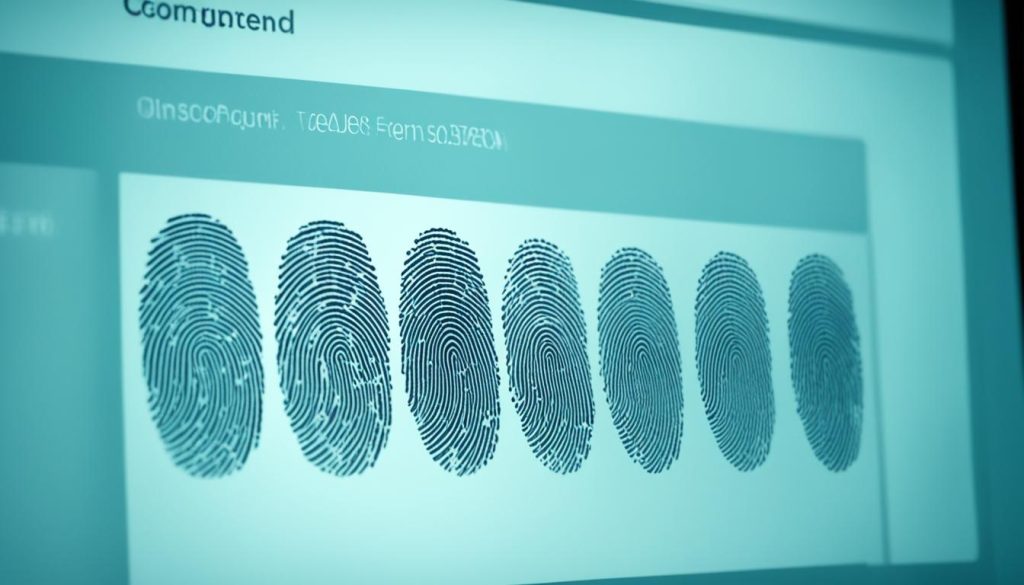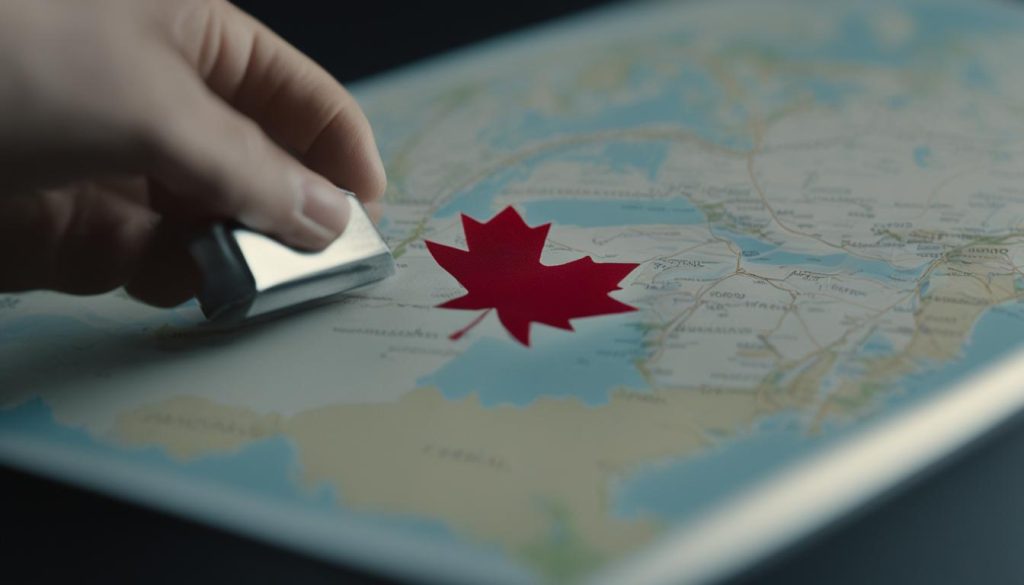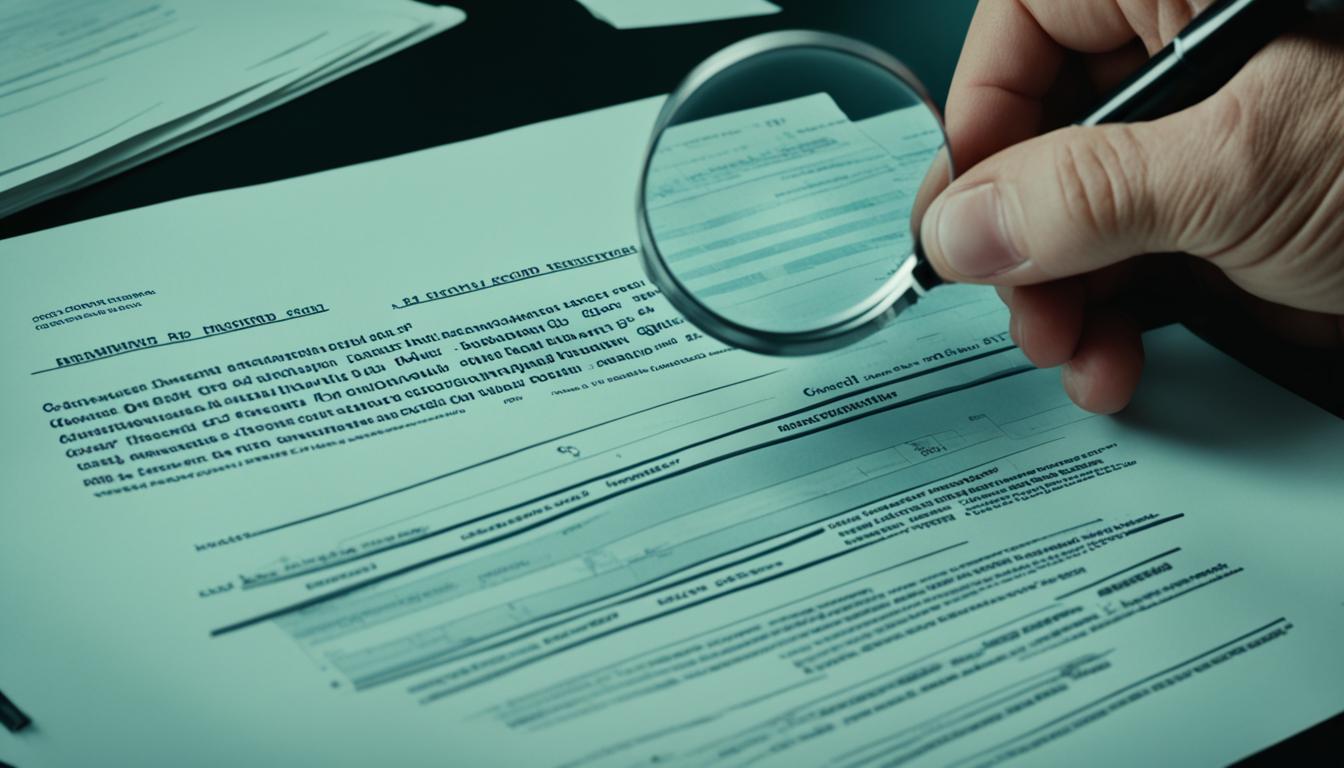Clearing Fingerprints: Canada Police Database Removal
Did you know that fingerprints and photos taken during an arrest in Canada are stored in the Canadian Police Information Centre (CPIC) and are accessible to various police agencies and customs organizations worldwide, including the Royal Canadian Mounted Police (RCMP), United States customs, Canadian customs, Interpol, and the Federal Bureau of Investigation (FBI)? This means that your fingerprints can have a lasting impact on your interactions with law enforcement and travel experiences.
When it comes to removing fingerprints from the police database in Canada, it’s essential to understand the process and explore your options for criminal record removal. Whether you’re seeking to clear your criminal history for travel purposes or employment opportunities, taking the necessary steps to remove your fingerprints can be crucial.
Key Takeaways:
- Having fingerprints in the police database can impact travel experiences and interactions with law enforcement.
- Clearing fingerprints from the RCMP database requires applying for a criminal pardon, now known as a record suspension.
- Different dispositions of criminal charges have varying requirements for managing and potentially removing records.
- Long-term implications of criminal records, such as potential travel delays, can be mitigated through record suspensions.
- The Toronto Police Service has a policy for the destruction of fingerprints, photographs, and records associated with non-conviction dispositions.
The Process of Getting a Criminal Pardon
To clear a criminal record in Canada and expunge your criminal record, you must go through the process of applying for a criminal pardon, now known as a record suspension. This is a crucial step towards regaining your reputation, restoring your rights, and moving forward with a clean slate.
Obtaining a record suspension is not a straightforward task. It involves navigating complex paperwork and understanding the requirements set by the Parole Board of Canada. To increase the chances of a successful application, it is advisable to seek the assistance of experienced criminal lawyers who are familiar with the intricacies of the criminal justice system.
When applying for a record suspension, you must meet specific eligibility criteria. These criteria determine whether you qualify for a pardon and the necessary steps to be taken to clear your criminal record. Consulting a professional can help you determine your eligibility and guide you through the entire process.
By working with a criminal lawyer, you can ensure a smoother and more personalized experience as they will handle all the necessary paperwork, legal requirements, and communications with the Parole Board of Canada on your behalf. They will advocate for your rights and provide the best representation, increasing the likelihood of a successful outcome.

Having a criminal record can significantly impact various aspects of your life, including employment opportunities, travel plans, and personal relationships. However, by following the proper steps and obtaining a criminal pardon, you can take control of your future and leave your past mistakes behind.
A criminal record suspension gives you the opportunity to start fresh, removing any barriers that a criminal record may have imposed. It provides you with the freedom to pursue job opportunities, travel without restrictions, and build a brighter future for yourself and your loved ones.
Managing Criminal Records for Different Dispositions
Different dispositions of criminal charges have varying requirements for managing and potentially removing records. For individuals who have received absolute or conditional discharges, the records can be sealed after specific waiting periods. Non-conviction information, such as withdrawn or dismissed charges, can also be eligible for destruction upon request. However, it is crucial to note that the destruction of fingerprints, photographs, and records of disposition does not guarantee entry into other countries, as each country has its own entry requirements and recognition of record suspensions.

| Disposition | Management of Records |
|---|---|
| Absolute Discharge | Records can be sealed after a waiting period of one year for summary offenses and three years for indictable offenses. |
| Conditional Discharge | Records can be sealed after a waiting period of three years for summary offenses and five years for indictable offenses. |
| Withdrawn or Dismissed Charges | Non-conviction information can be eligible for destruction upon request. The specific process and waiting periods may vary. |
Impact on Travel and Vulnerable Sector Checks
Having fingerprints and criminal records in the police database can significantly impact your travel experiences and interactions with law enforcement. Whether you are crossing borders or going through customs checkpoints, having fingerprints and records on file can subject you to increased scrutiny and searches by border guards and customs officials.
In addition to travel complications, individuals with criminal records may face delays or denials when applying for jobs or working in vulnerable sectors that require background checks. Employers in these sectors prioritize safety and security, and having a criminal record may raise concerns about an individual’s suitability for a particular position.
Fortunately, there are steps you can take to overcome these potential hurdles and ensure a smoother process in various aspects of your life, including travel and employment. Clearing your fingerprints and criminal records can help remove these barriers and provide you with greater opportunities.
Effect on Travel
When you have fingerprints and criminal records in the police database, it can lead to increased scrutiny during travel. Border guards and customs officials have access to this information, which may trigger additional checks and questioning. This can result in longer waiting times and potential delays in your travel plans.
Moreover, having a criminal record may affect your eligibility for certain types of visas or entry into specific countries. Each country has its own immigration policies and criteria, and having a criminal record could lead to denial of entry or additional restrictions.
Impact on Employment and Vulnerable Sector Checks
A clear criminal history is often a requirement for many job opportunities, particularly in vulnerable sectors such as child care, elder care, or positions that involve direct contact with vulnerable individuals. Employers in these sectors conduct thorough background checks to ensure the safety and well-being of the people they serve.
If you have a criminal record, it can create challenges when applying for jobs in these sectors. Your record may raise concerns about your trustworthiness and suitability for working with vulnerable individuals, leading to potential delays or denials in the hiring process.
Clearing Your Criminal History
To clear your criminal history in Canada and delete your arrest record, one option is to apply for a criminal pardon, now known as a record suspension. Another option is to seek the destruction of non-conviction information and the removal of fingerprints and photos from the RCMP database.
Working with experienced criminal lawyers who specialize in record suspensions and criminal record management can help guide you through the process and increase your chances of successfully clearing your criminal history. They can assist with the necessary paperwork, legal requirements, and represent you when dealing with relevant authorities.
| Benefits of Clearing Your Criminal History |
|---|
| 1. Enhanced travel experiences without the fear of increased scrutiny and potential delays at border crossings and customs checkpoints. |
| 2. Increased employment opportunities, especially in vulnerable sectors that require a clear criminal history. |
| 3. Peace of mind knowing that your records are no longer accessible to employers, border officials, and law enforcement agencies. |
| 4. The ability to rebuild your reputation and move forward with your life. |
Long-term Implications of Criminal Records
Even after fingerprints and photos are destroyed, law enforcement agencies can still connect individuals to past charges through their assigned Fingerprint Section (FPS) number. This number remains stored in the RCMP database for an extended period. Consequently, agencies like US customs might still identify past charges when conducting record searches, leading to increased scrutiny, potential travel delays, and even denial of entry into the country.
Seeking the removal of criminal records through record suspensions or other legal processes can help mitigate these long-term implications and provide individuals with peace of mind.
| Long-term Implications | Solutions |
|---|---|
| Increased scrutiny during record searches | Record suspensions |
| Potential travel delays and denial of entry | Record expungement |
| Impact on employment opportunities | Legal processes to clear criminal records |
Toronto Police Service’s Policy on Destruction of Fingerprints
The Toronto Police Service has a dedicated policy in place regarding the removal of fingerprints, photographs, and records of disposition associated with non-conviction dispositions. This policy outlines the specific criteria and considerations that need to be fulfilled in order for these records to be destroyed.
Applicants must meet certain requirements, including being an adult, having no criminal convictions, and not having any outstanding charges. Additionally, there is a waiting period that must be observed before the application can be processed. Through this policy, the Toronto Police Service aims to provide individuals with a pathway to remove their fingerprints and associated records from the Royal Canadian Mounted Police (RCMP) database.
However, it is crucial to note that the destruction of fingerprints and records by the Toronto Police Service does not automatically guarantee unrestricted access to other countries. Each country has its own set of requirements and protocols for recognizing record suspensions, which may affect an individual’s ability to enter or travel to those countries.
- Canada Arrest Protocol: What Police Say Upon Arrest - June 12, 2025
- Can Police Disclose Who Reported You? Find Out Here - June 6, 2025
- 2025 Window Rebates Ontario: How to Save Money While Replacing Windows and Doors - April 24, 2025




















Post Comment